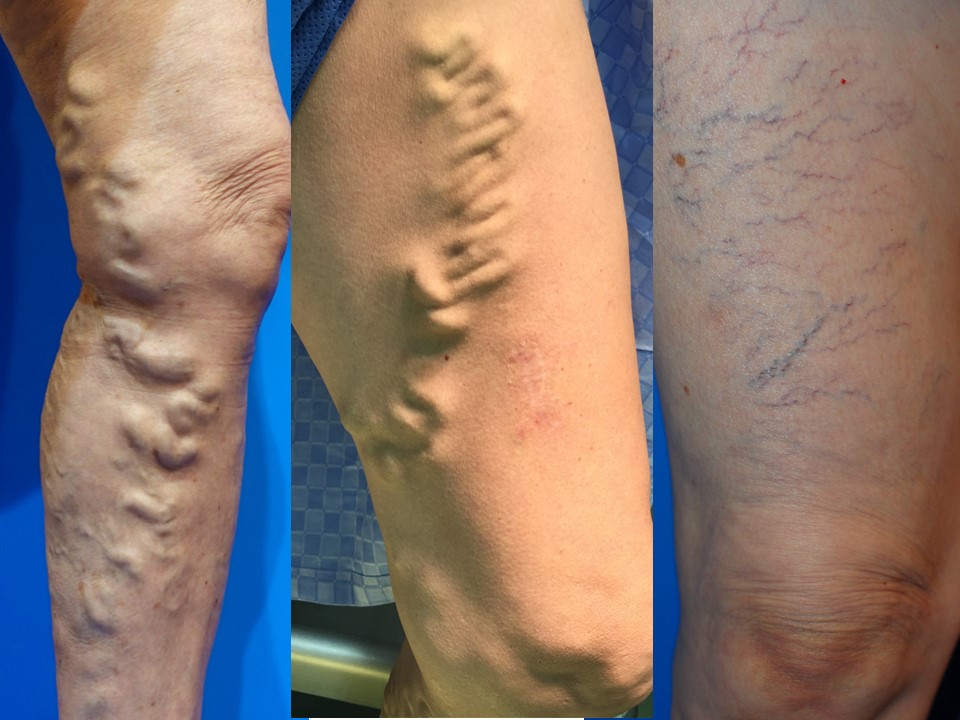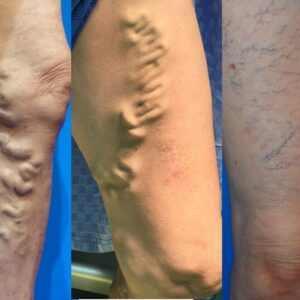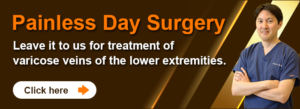Complete Guide to Varicose Veins: Symptoms, Causes, and Treatments
Varicose veins are a common condition that affects many people. This article provides a comprehensive explanation of varicose veins, along with detailed information about treatment options and preventive measures.
1. What are Varicose Veins?
2. Main Causes of Varicose Veins
3. Symptoms and Risks
4. Treatment Options
5. Prevention and Lifestyle Improvements
6. How to Choose a Clinic
7. Frequently Asked Questions (FAQ)
1. What are Varicose Veins?
Varicose veins refer to a condition where blue veins become visible on the surface of the legs. It occurs when the valves in the veins do not function properly, causing blood to flow backward, leading to vein enlargement and swelling.

2. Main Causes of Varicose Veins
The main causes of varicose veins include:
– Genetic Factors: A family history of varicose veins increases the risk of developing the condition.
– Aging: As people age, veins weaken, and their valves may stop functioning properly.
– Pregnancy and Hormonal Changes: Women are more susceptible due to hormonal influences, with pregnancy often worsening varicose veins.
– Sedentary or Prolonged Standing Work: Poor circulation from long periods of sitting or standing can lead to varicose veins.
Addressing these factors through lifestyle changes can be effective for prevention.
3. Symptoms and Risks
Symptoms of varicose veins range from mild to severe and may include:
– Leg pain and fatigue
– Nighttime or early-morning cramps
– Restlessness in the legs
– Leg swelling
– Bulging, twisted veins
– Skin discoloration
– Skin eczema and itching
– Skin ulcers
Left untreated, complications such as blood clots and ulcers may occur, making early diagnosis and treatment essential.
4. Treatment Options
Treatment for varicose veins depends on the severity of symptoms. Here are the latest options:
4.1 Compression Therapy
Using elastic stockings (compression socks) to apply pressure on the veins improves blood flow and alleviates symptoms.
4.2 Sclerotherapy
A treatment that involves injecting a sclerosing agent to close small varicose veins or spider veins effectively.
4.3 Endovenous Ablation (Catheter-Based Treatment)
This method uses a catheter to heat and close the affected veins. Laser treatments do not involve skin incisions, resulting in minimal scarring.
4.4 Endovenous Glue Treatment
Medical adhesives are injected into the vein to seal and close it.
5. Prevention and Lifestyle Improvements
Preventing varicose veins is key. Effective lifestyle changes include:
– Regular Exercise: Engage in activities like walking or swimming to activate leg muscles.
– Elevating Legs: Periodically raise your legs during prolonged sitting or standing to promote blood circulation.
– Weight Management: Maintain a healthy weight to reduce strain on veins.
6. How to Choose a Clinic
Choosing a trustworthy medical facility is crucial for varicose vein treatment. Consider these factors:
– Specialist Availability: Ensure the clinic has physicians specializing in varicose vein treatment.
– Treatment Experience: Clinics that disclose treatment numbers tend to be more reliable.
– Modern Equipment: Check if the clinic offers advanced treatments like laser or glue therapy.
7. Frequently Asked Questions (FAQ)
Q1: Do I need to treat varicose veins?
Treatment is necessary in the following cases:
1. For cosmetic improvement: Surgery is the only option for improving appearance. However, those unconcerned with aesthetics may not need surgery.
2. To alleviate severe symptoms: Compression stockings can help, but surgery offers a permanent solution for those who find long-term use impractical.
3. If stasis dermatitis is present: Surgery is essential as there is a high risk of developing skin ulcers.
Q2: Can varicose veins recur after treatment?
While recurrence is not impossible, improving lifestyle habits and regular check-ups can significantly reduce the risk.
Conclusion
Varicose veins are a common condition, but early diagnosis and proper treatment can lead to significant improvement. If you are concerned about varicose veins, consult a specialist today.




